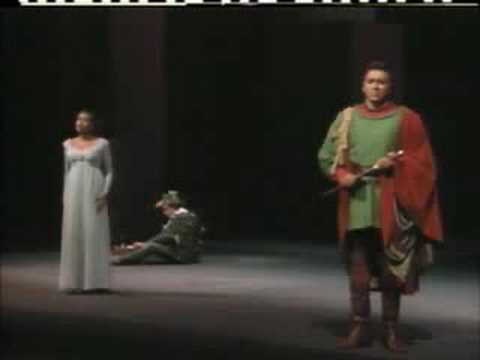 This week our SoTD curator is Laura Lee Everett, the Director of Artistic Services at OPERA America, who’s had a long and varied career in opera—stage managing, mentoring young artists, facilitating the creation of new works, and more—at companies all across the U.S., from Alaska to Virginia. (She’s also helped NYFOS present our NYFOS Next series at the National Opera Center for the past few years. You can catch it there in February 2016!) Thank you and welcome, Laura Lee!
This week our SoTD curator is Laura Lee Everett, the Director of Artistic Services at OPERA America, who’s had a long and varied career in opera—stage managing, mentoring young artists, facilitating the creation of new works, and more—at companies all across the U.S., from Alaska to Virginia. (She’s also helped NYFOS present our NYFOS Next series at the National Opera Center for the past few years. You can catch it there in February 2016!) Thank you and welcome, Laura Lee!
Opera vexes me.
I love working on new operas. Collaborating on premieres by Carlisle Floyd, Dominic Argento, Lee Hoiby, Jake Heggie and John Musto is extremely exciting. It is also exhausting.
I love working on “bread and butter” repertoire: Aida, Butterfly, Carmen, Tosca. Blood, sex and violence, tunes you can hum – great pieces, to be sure. But I grow weary of them when I repeatedly work on the same pieces. I did 6 productions of La Traviata in 9 months and it liked to have killed me. But there is one thing I never tire of, that constantly challenges me musically and emotionally and makes it clear why I love this art form.
 There is nothing with stronger roots to ground me to music than Mozart.
There is nothing with stronger roots to ground me to music than Mozart.
To some, I know that sounds a bit clichéd, but after 25 years of working on everything from Montiverdi to Howard Shore, Mozart cleanses my palette and feeds my soul. When hearing singers in training, Mozart is the place you cannot hide. His arias will show everything you can or cannot yet do with your instrument and your imagination.
Mozart knows how to tell a good story. He picked several of the most controversial of his time to set to music. His skill was in telling stories that exposed all facets of human relationships and the emotions are all written in the music. I have several favorite Mozart operas, but the top of my list is Die Zauberflöte – The Magic Flute. You may poke whatever fun you like about that (opera purists – looking at you) but it is a show that I both performed in and worked on many times and I always take a great emotional journey through the piece. One aria in particular can be the single most devastating and beautiful piece of music – Pamina’s only aria “Ach, ich fühl’s”. Rare for a Mozart ingénue to only have one aria, but it is so powerful and unlike so much else of his writing. It stands as the one moment in the piece where she completely gives in to despair, yet makes a clear decision to end her life, thus driving responses from everyone around her in the story. There are titles on the attached video, but here is the translation:
Ah, I feel it, it has disappeared
Forever gone love’s happiness.
Nevermore will come the hour of bliss
Back to my heart!
See, Tamino, these tears,
Flowing, beloved, for you alone.
If you don’t feel the longing of love
Then there will be peace in death!
Pretty heady stuff for a comic singspiel written for the public theater house. This song always makes me think of Benedict’s mocking line about love songs from Shakespeare’s Much Ado About Nothing:
‘Is it not strange that sheep’s guts could hail souls out of men’s bodies?’
In times of woe and sadness, this piece does just that for me.
Here is a somewhat fuzzy video, but with titles in English, of Kathleen Battle performing in the 1991 production from the Metropolitan Opera, James Levine conducting. (Francisco Araiza as Tamino and Manfred Hemm as Papageno).
(The aria starts around 2:00 mins into the clip)



BROKEN LINK! Follow this one to hear the song: https://www.youtube.com/watch?v=PtG5A1WFYWI